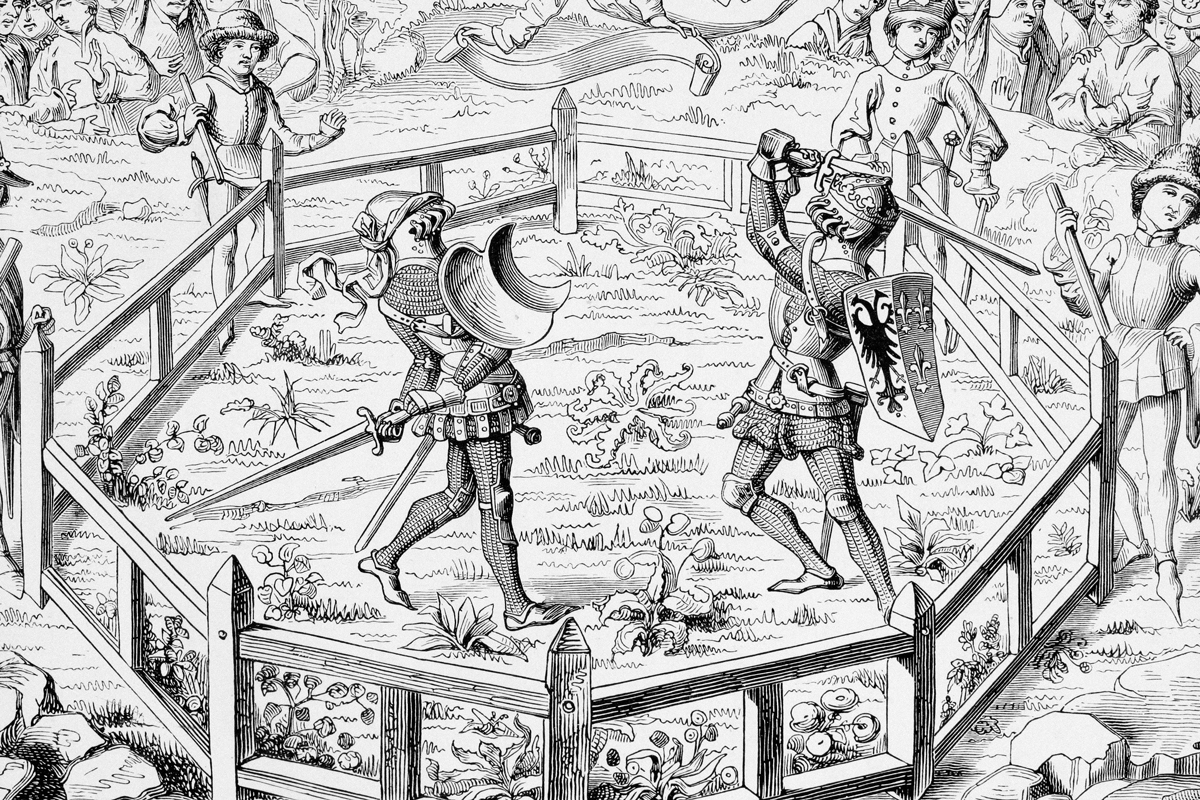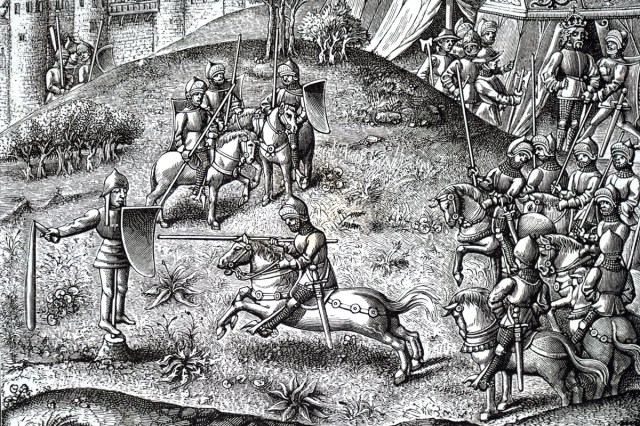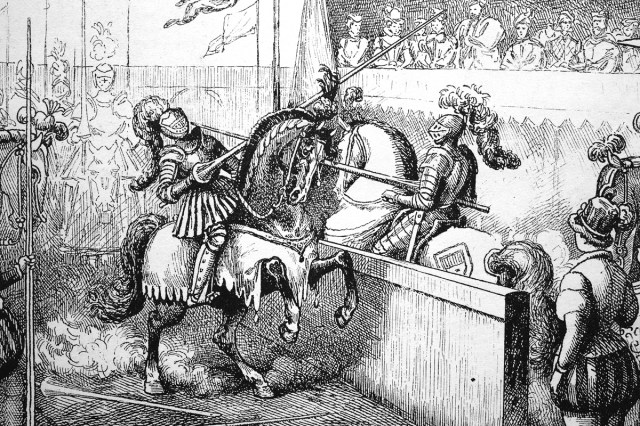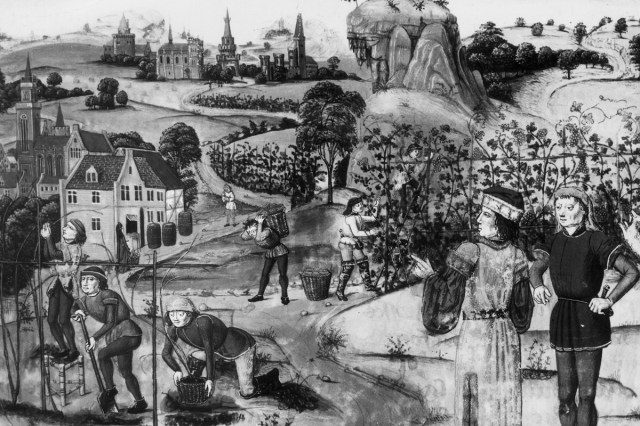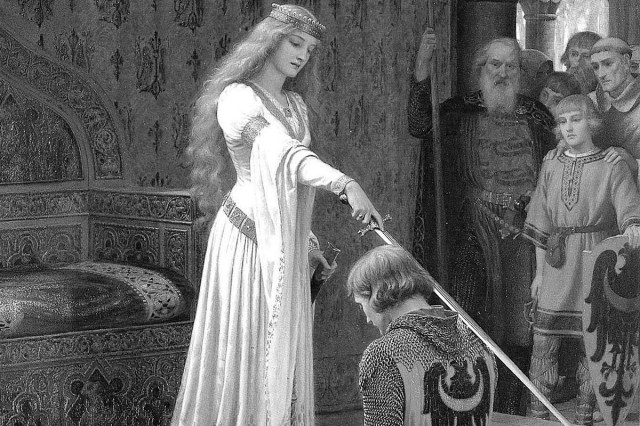What Did Medieval Knights Actually Do?
Medieval knights, those armed and armored men (or in some rare cases, women) on horseback, thrived throughout Europe in the days before kings depended on standing armies to enforce their sovereignty. Renowned for their martial prowess and romanticized for their adherence to the moral code of chivalry, these warriors have been celebrated in fiction and the public imagination since the days when they were still an active fighting force.
And yet, like the modern-day movie star or professional athlete, these extolled individuals lived a life that was less glamorous than perception would have us believe. While there were indeed times when a knight would graciously woo a fair maiden or toast to a resounding battlefield victory with fellow soldiers, their hours were often occupied by more mundane activities. Here’s a taste of what everyday life was like for knights in the Middle Ages.
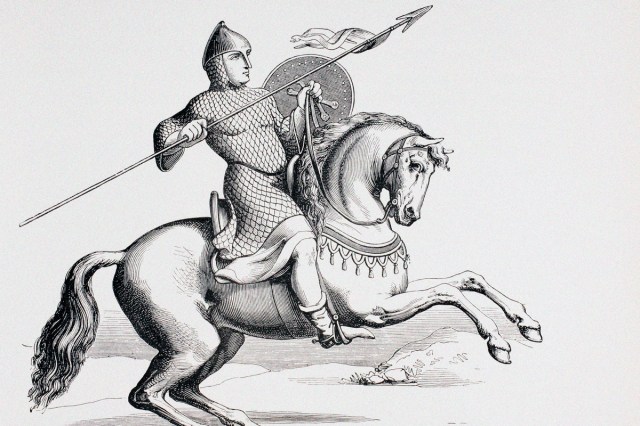
Military Service
As part of the medieval feudal system, knights often received a plot of land (known as a fief) from a king or another powerful noble in exchange for a period of military service, typically lasting 40 days out of a year. Such service might have required the knight to ride into a pitched battle, where they would attack enemies with a broadsword, lance, or mace. A knight might also have taken part in the siege of a castle or fortified town, or in a raid intended to destroy enemy villages and crops.
Despite the glory that could be attained from battlefield exploits, some knights ducked this service by paying a fee known as scutage. This arrangement worked out well for both sides; a busy knight could avoid having to leave behind their family and affairs, while their lord could use the money to hire mercenaries who were more enthusiastic about fighting.
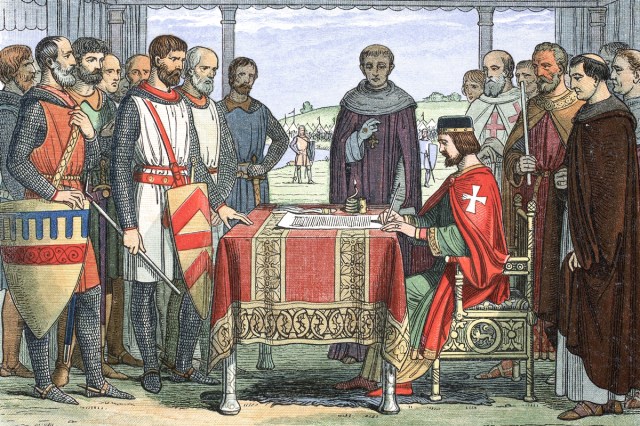
Administrative and Legal Tasks
Along with armed protection, a knight was often required to provide civil and administrative duties to their lord. As explained in A Chronicle History of Knights, this may have entailed supplying political or military advice, witnessing the signing of documents, or serving as an ambassador.
A knight might also have served as a judge in a lord’s court or handled judicial responsibilities themselves by mediating disputes between the serfs under their watch and meting out punishment.





